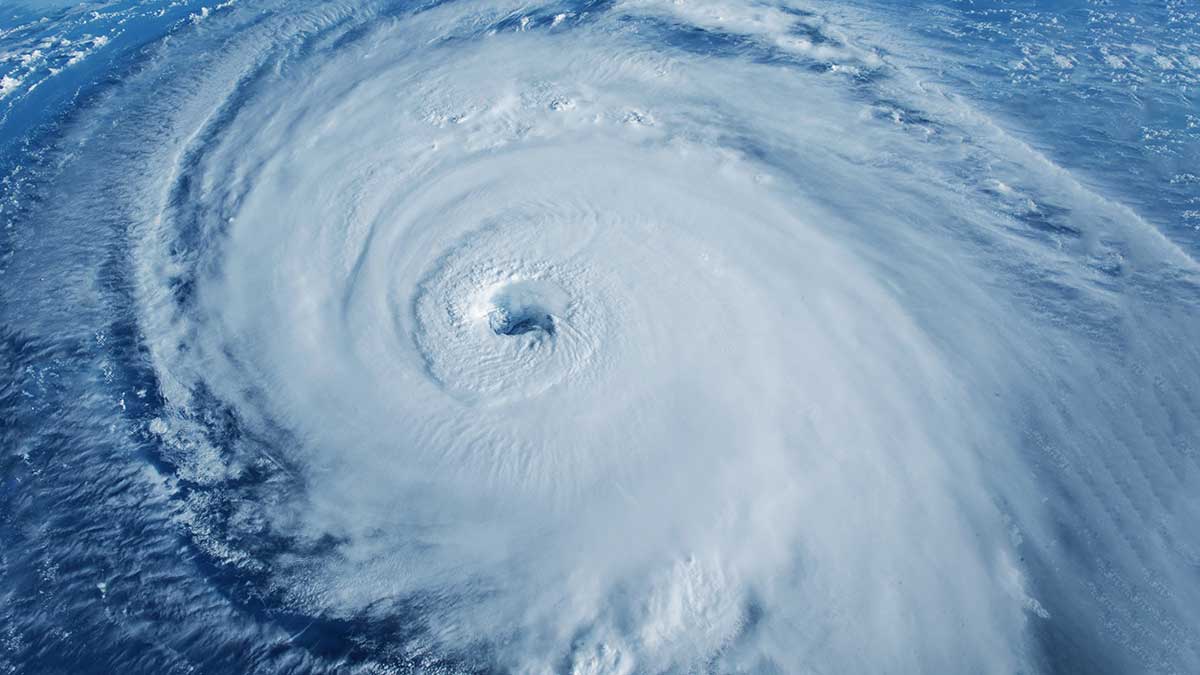[ad_1]

Up to now, apart from individuals who lived in a couple of warm-climate coastal communities, hardly anybody moreover sailors gave a lot thought to hurricanes. However hurricanes have gotten extra frequent and extra extreme with local weather change. As coastal populations develop, extra communities are being affected by hurricanes. Even when you reside removed from the ocean, hurricanes can have an effect on extra than simply your summer time seaside trip plans.
Hurricanes are getting worse, producing extra storm particles and inflicting injury additional inland. That’s elevating insurance coverage charges for extra than simply beachfront properties. As extra individuals select to maneuver to keep away from these hazards, there may be rising potential for inhabitants adjustments in communities removed from the coast. Right here’s what it’s good to learn about hurricanes, wherever you reside.
A Totally different Type of Storm
Hurricanes, typhoons, and cyclones are all names for a similar climate phenomenon, a category of storms scientists name “tropical cyclones.” Tropical cyclones are rotating low-pressure thunderstorms that type over tropical or subtropical waters – you may consider them as moist tornadoes. When the wind reaches sustained speeds of 74 mph, the storm turns into a hurricane. The Saffir-Simpson Hurricane Wind Scale categorizes tropical cyclones on a 1 to five scale based mostly on most sustained wind velocity. The upper the wind velocity, the upper the class, and the higher the hurricane’s potential for inflicting injury. Katrina and Maria, are examples of the worst storms which have change into acquainted names in historical past.
For historic and cultural causes, tropical cyclones are known as hurricanes after they type within the Atlantic Ocean, Caribbean Sea, Gulf of Mexico, or central and jap North Pacific. After they type over the South Pacific and Indian Oceans, they’re known as cyclones. After they develop within the Northwest Pacific the storms are known as typhoons.
Local weather Change
A hurricane by any identify attracts warmth from heat ocean air and releases it by rain in thunderstorms that spin round a relaxed middle, known as the attention. As local weather change causes ocean temperatures to rise, the potential space for hurricane formation expands. Sea degree rise may additionally enhance the danger of flooding and storm surge injury additional inland.
Like wildfire season, the hurricane season is getting longer. Seven of the final eight years have skilled named storms (that’s, a storm with sustained winds above 39mph) exterior of the historically accepted June by November season. In 2023, there was one in January. Lately, hurricanes have appeared to change into extra frequent, which means that hurricane seasons have change into extra energetic. Nonetheless, the EPA maintains that enhancements in our capacity to detect storms earlier than they make landfall and adjustments in the way in which we measure storm severity could also be answerable for the obvious enhance in tropical cyclone exercise. Whether or not or not hurricanes have already gotten worse, each the U.S. World Change Analysis Program and the Intergovernmental Panel on Local weather Change venture that tropical cyclones will change into extra intense over the twenty first century, with larger wind speeds and heavier rains.
Hurricane Impacts
Insurance coverage corporations and catastrophe response specialists are a lot much less circumspect in regards to the rising seriousness of hurricanes. New information for disastrous hurricane seasons had been set in 2005, 2017 and in 2020.
Each hurricane season since 2015 has seen extra storms than regular, and out of 363 climate disasters from 1980-2023 that price not less than a billion {dollars}, tropical cyclones brought on probably the most deaths and probably the most injury. Hurricanes brought on the deaths of 6,890 individuals since 1980 and greater than $1.3 trillion in damages, with a median price of $22.8 billion per occasion. In addition to the associated fee in human lives and bodily injury, hurricanes create large quantities of nonrecyclable, typically poisonous, particles that prices tens of millions to securely dispose.
There’s a rising motion to create a brand new class for probably the most excessive hurricanes. Class 6 would apply to a hurricane with sustained winds over 192 mph. There have been 5 storms of that depth since 2013.
Hurricane Response
In case you reside in an space that experiences hurricanes, it’s good to plan forward for hurricane season. Which means creating an emergency provide equipment with non-perishable meals, potable water, medical provides, and different important objects.
Greater than 3.3 million People had been displaced by pure disasters in 2022, greater than half of them on account of hurricanes. Planning for non permanent relocation not looks as if an alarmist exercise. The truth is, practically a 3rd of People surveyed cited local weather change as a purpose to maneuver. Shifting to larger floor additional inland or searching for a disaster-resilient house in your space is price contemplating.
Whether or not it’s in a brand new house or your present one, change into concerned in neighborhood resilience efforts and prioritize renovation tasks – like roofing for excessive climate – that make your property extra proof against disasters. And although it will probably really feel like your particular person actions don’t make a distinction, making each effort to cut back your carbon footprint could also be crucial factor you are able to do to reduce future hurricane injury.
[ad_2]
Source link



